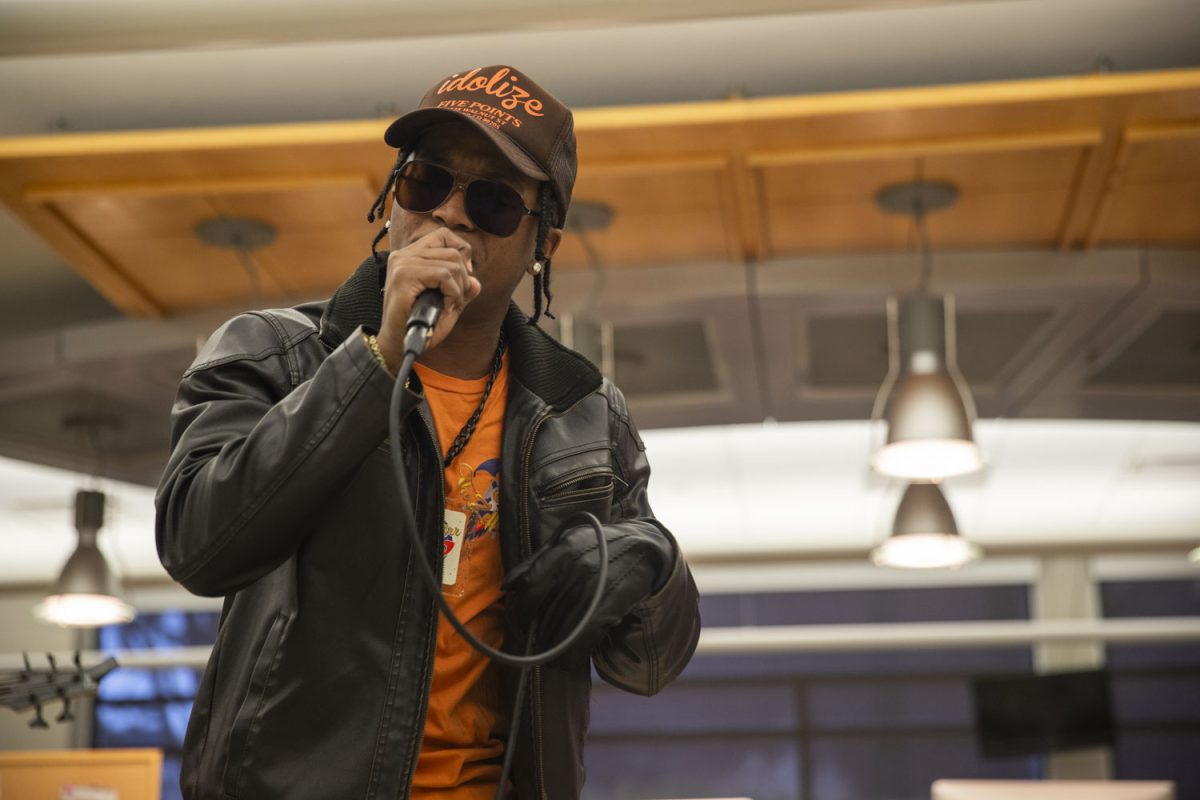Mike Morsch, the author of The Vinyl Dialogues, will read at Prairie Lights, 15 S. Dubuque St., at 1 p.m. on Saturday. The 1982 University of Iowa graduate’s second book is historical nonfiction.
He said his goal was to record pieces of rock ’n’ roll history in the 1970s through the eyes of the artists who lived it. The interviews give their perspectives and recollections of those times. In his interview with The Daily Iowan, Morsch gave his perspective.
DI: What inspired you to write The Vinyl Dialogues?
Morsch: I love to write. And like most people, I love the music of my era, the 1970s. I was in high school and college during the ’70s, and it was an impressionable and memorable time for me. The music of that decade provided the soundtrack of my life.
DI: How did you come up with the title?
Morsch: The title originally was going to the The Vinyl Monologues, an obvious play on The Vagina Monologues. But then, I began to think that the interviews I was having with the artists weren’t monologues, they were dialogues. They were conversations. So “monologues” didn’t really fit for the title and dialogues did.
DI: What was the biggest struggle you faced when writing your book?
Morsch: Getting access to the all the artists I wanted to talk to. Because I was with a media organization at the time, my access was pretty good in most instances. Any band or artist that had a show in the Philadelphia area, our media organization would request an interview to preview the upcoming event. Once I had the artists on the phone and I had the information I needed for a story, I could usually tack a question on to the end of the interview about a specific album from the 1970s.
DI: If you had to do it all over again, would you change anything in The Vinyl Dialogues?
Morsch: Anytime a writer is emotionally invested in a project, there are always things one can look back on and wish to do better. I could have been better at self-editing. You can tinker and tweak forever, but at some point, you just have to trust yourself and your work and let it go out into the world. But generally, I’m pleased and proud of this book and wouldn’t change much.
DI: What did you learn from writing your book?
Morsch: I don’t think a writer ever quits learning, no matter how long one has been doing it. I thought transitioning from newspaper writing to book writing actually made me a better interviewer and that in turn made me a better writer. I had more time to listen to the interviews again and transcribe the notes and then let that information ferment in my head for a while before I started to write. I enjoyed that whole process quite a lot.
DI: Is there a message in your book that you want readers to grasp? What do you want them to take away from the reading?
Morsch: I’m not really trying to leave the readers with any deep message. I thought my goals were pretty simple: accurately present pieces of rock and roll history through the artists who made and lived that history and to do it in an informative and entertaining way.
DI: What book(s) are you reading now?
Morsch: If one wants to learn how to write, one should read a lot. And read the stories and authors that you like.
No surprises here, but I’m really into historical nonfiction, especially the time period in U.S. presidential history between 1880 and 1930. Candice Mallard has written two great books, Destiny of the Republic about the assassination of President James Garfield, and River of Doubt about President Theodore Roosevelt’s journey down an uncharted part of the Amazon in 1912. 1920; The Year of the Six President, by David Pietrusza, The President is a Sick Man, by Matthew Algeo, about a secret operation President Grove Cleveland had in 1893; The President and the Assassin, by Scott Miller, which details the assassination of President William McKinley.
While I was writing my book, I read books by some of the artists I was interviewing, most notably Wild Tales, by Graham Nash of Crosby, Still, and Nash, and Shell Shocked, by Howard Kaylan of the Turtles. I didn’t want to repeat anything that they had already written about, and fortunately, I was able to do that.
And the last time I was at Prairie Lights, in the spring, I took a couple of recommendations from the staff there and got Class A Baseball in the Middle of Everywhere, by Lucas Martin and The Flame Throwers, by Rachel Kushner.
The other book I’m reading now is Death of a Gunfighter, by Dan Rottenberg. It’s about Jack Slade, the Wild West’s most elusive legend.
DI: What are your current projects?
Morsch: I’m sending out interviews requests for The Vinyl Dialogues: Volume II. I had only 30 albums in the first book, which barely scratches the surface of an entire decade of music. There is still a lot of fertile ground left to explore in the 1970s. And because the first book was so much fun to do, it makes sense to me to continue to do more of it.
DI: Do you have anything specific you’d like to say to your readers or those coming to see you at Prairie Lights?
Morsch: Let’s have some fun. Everybody has stories that are special to them, and many of those stories have an element of music. What song was playing when you had your first kiss? What album did you and your first significant other just wear out? Music is enjoyable, fun, and special. Let’s share those stories. And maybe I’ll get some ideas of what albums readers would like to see in the next volume.






